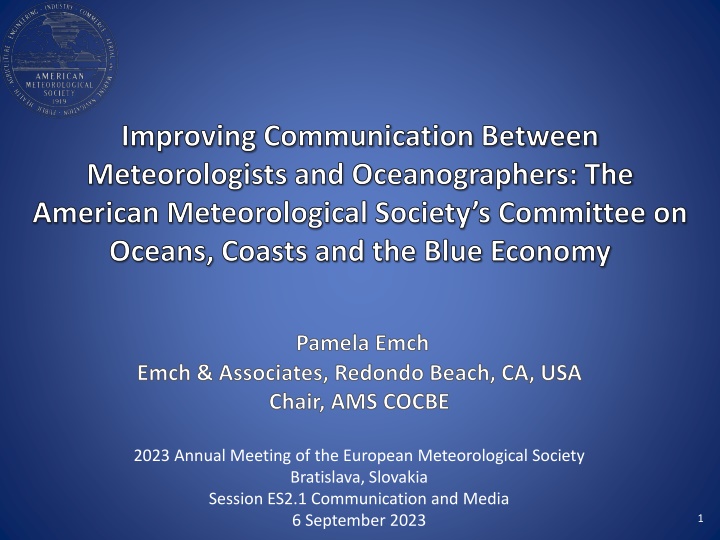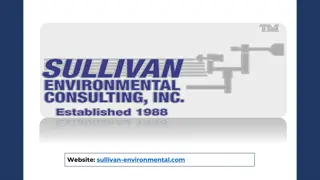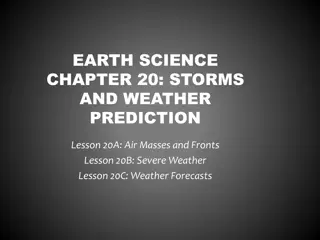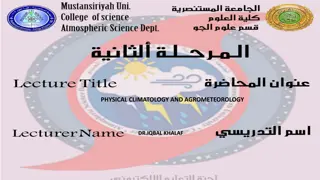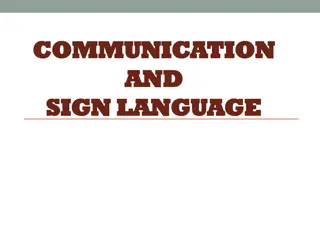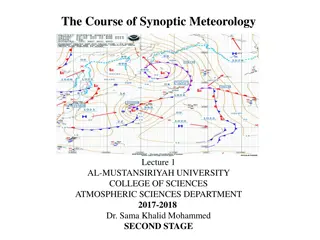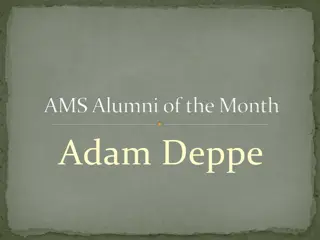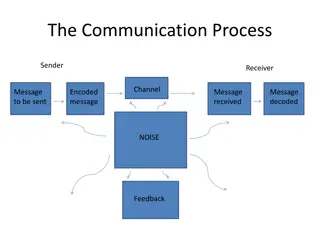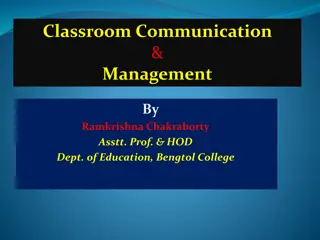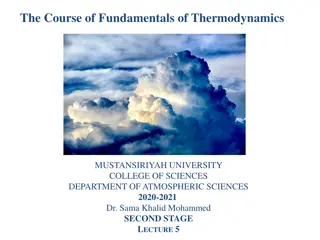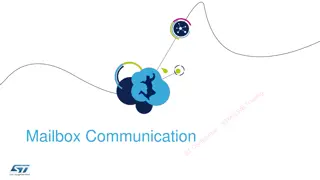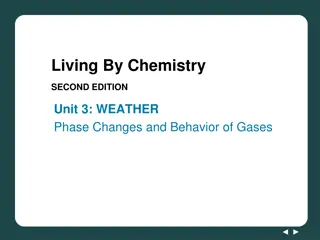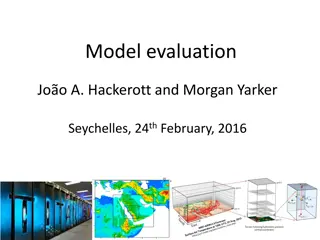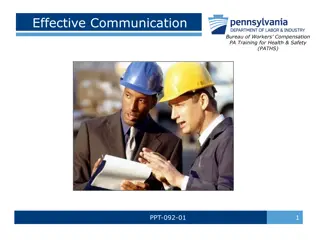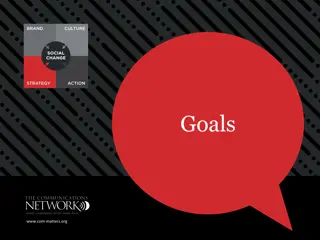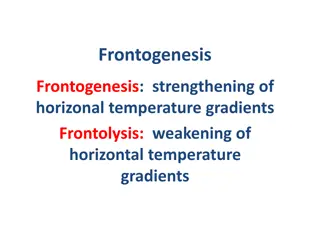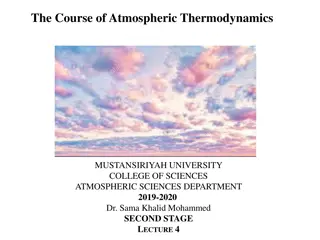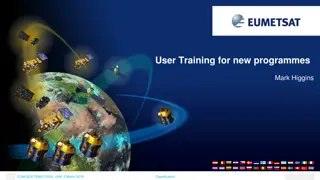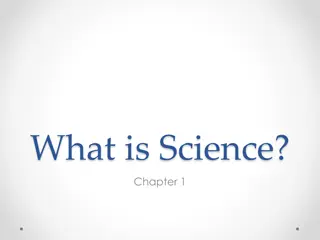Strengthening Communication Between Meteorologists and Oceanographers
American Meteorological Society (AMS) has taken steps to improve collaboration with oceanographers through the Committee on Oceans, Coasts, and the Blue Economy. Initiatives include increasing ties, organizing sessions, and addressing a wide range of topics to enhance interactions between the atmospheric and oceanographic communities.
Download Presentation

Please find below an Image/Link to download the presentation.
The content on the website is provided AS IS for your information and personal use only. It may not be sold, licensed, or shared on other websites without obtaining consent from the author.If you encounter any issues during the download, it is possible that the publisher has removed the file from their server.
You are allowed to download the files provided on this website for personal or commercial use, subject to the condition that they are used lawfully. All files are the property of their respective owners.
The content on the website is provided AS IS for your information and personal use only. It may not be sold, licensed, or shared on other websites without obtaining consent from the author.
E N D
Presentation Transcript
Improving Communication Between Meteorologists and Oceanographers: The American Meteorological Society s Committee on Oceans, Coasts and the Blue Economy Pamela Emch Emch & Associates, Redondo Beach, CA, USA Chair, AMS COCBE 2023 Annual Meeting of the European Meteorological Society Bratislava, Slovakia Session ES2.1 Communication and Media 6 September 2023 1
American Meteorological Society (AMS) Membership Over 13,000 professionals in the atmospheric, oceanic, hydrologic, and related sciences and areas ~1/3 academic, 1/3 public/government, 1/3 private sectors Among scientific disciplines likely higher percentage in atmospheric science ~ 3,000 students ~ 1,000 Associate Members individuals outside the atmospheric and related sciences, such as weather enthusiasts, K-12 teachers, etc. 2
AMS Volunteer Commissions Council (elected) Education and Human Resources Scientific and Technological Activities (STAC) Commissions Publications Professional Affairs Weather, Water and Climate Enterprise (CWWCE) Planning Under the six commissions there are over 140 boards and committees on which over 1000 volunteers serve 3
AMS and Oceanographers AMS leadership has wanted to strengthen interactions and ties between AMS and the oceanographic community The AMS Scientific & Technological Activities Commission (STAC) includes at least three committees partially focused on ocean-related topics Committee on Air-Sea Interactions, Committee on Atmospheric and Oceanographic Fluid Dynamics, Committee on the Coastal Environment Organize sessions at AMS Annual Meeting, etc. Oceanographers have commented: Typically these committees tend to be very atmospheric science centric. 4
In Fall 2020 AMS Initiated the Committee on Oceans, Coasts and the Blue Economy (COCBE) Resides in the AMS Commission on the Weather, Water, and Climate Enterprise (CWWCE) CWWCE s broad charter includes outreach to user community, communication, policy, economics and AMS strategic objectives COCBE Key Goals Strengthen ties with oceanographic community above and beyond those engendered in existing AMS committees Increase sessions and speakers related to the nexus between oceanography and atmospheric science Include wide-ranging topics: outreach to broader maritime user community, maritime transportation, decision support, economic factors, policy, and weather, water, climate, & environmental strategic initiatives 5
COCBE Members Institutions Span Sectors Public / Gov t Integrated Ocean Observing System, NOAA (US National Oceanic and Atmospheric Administration) Ocean Applications Branch, NOAA/NWS Ocean Prediction Center Nat l Ocean Service Ctr for Oper. Oceanographic Prod. & Serv., NOAA Northwest Fisheries Science Center, NOAA Fisheries Office of the Oceanographer of the Navy, US Navy / Pentagon Private ArcVera Renewables; Lynker Technologies; Jupiter Intelligence; Sonardyne International Academic London School of Economics Dept. of Marine Sciences, University of Georgia Scripps Institution of Oceanography, California After three years the committee now has a full membership of 12 individuals 6
Accomplishments Organized sessions at AMS Annual Meeting Healthy Oceans: Sustainability, Economics, and Environmental Security How Ocean Data, Information and Knowledge Delivers Societal and Economic Benefits in US Coastal Waters and Regions Extreme Maritime Weather, including talks on Container ship roll Public-private partnership to ensure super tankers move safely in and out of port (Ports of Los Angeles & Long Beach) Public weather services for ports Modernized forecasts and warnings for the high seas Extra tropical and tropical cyclones Ship tracking analyses Organized sessions at AMS Washington Forum (science & policy) Data and information needs/gaps for offshore wind energy capture in US waters & lessons to be learned from Europe Secured keynote speakers representing oceanographic community 7
Future Plans Continue organizing and leading meeting sessions Work with AMS and other entities on education / workforce of the future Span meteorology, oceanography, changing environment, coastal areas, + Increase international membership, topics, meeting attendance Attract members from, and increase collaboration with, other societies and organizations, such as the Marine Technology Society (MTS) Improve committee social media profile and outreach 8
Review of Goals and Challenges Have We Achieved Our Goals? Increase sessions related to oceanography/meteorology nexus Strengthen ties with oceanographic community Good communication within our committee, which includes meteorologists and oceanographers Challenges Our AMS meeting sessions are only moderately well attended Meteorologists gravitate to other sessions that they typically attend Many oceanographers don t generally think of AMS & AMS meetings as being a home for oceanography they go to other meetings/societies Need to improve awareness of our committee within and outside of AMS Our committee has had good momentum for a new, growing committee. It s now at a critical mass membership that should help us move forward. 9
